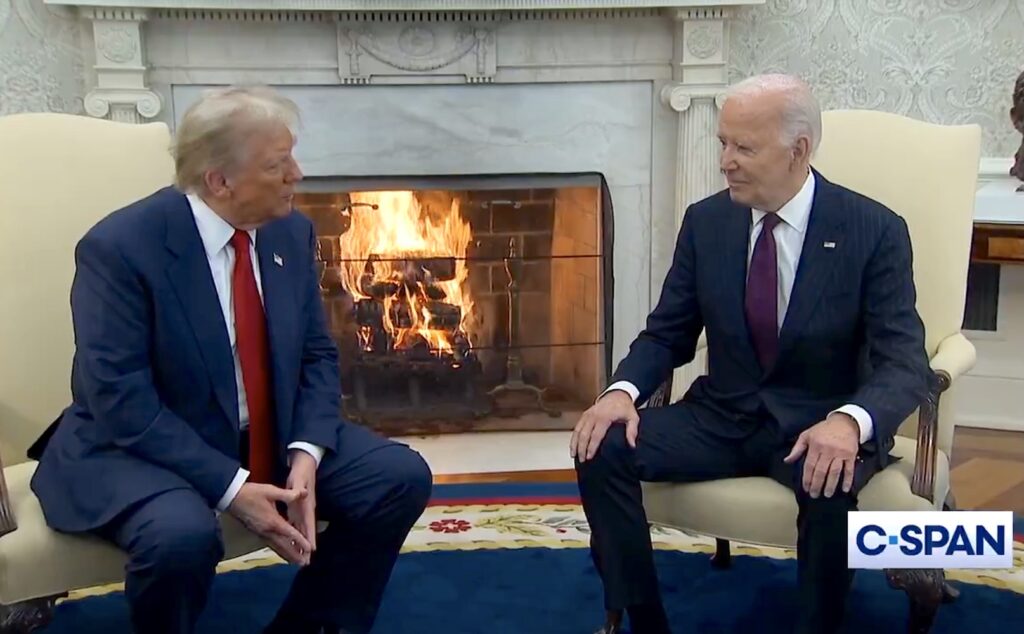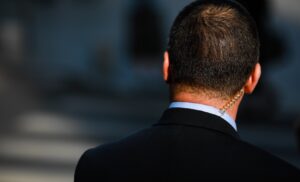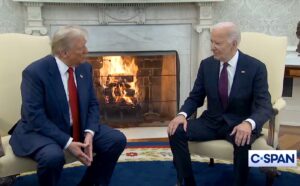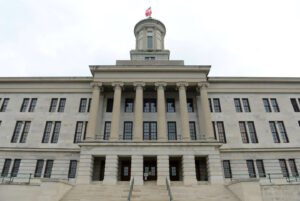Trump unlikely to forgive student loans, may initiate other higher ed reforms
President-elect Trump is expected to reverse the Biden administration’s efforts to forgive students loans, but other higher education reforms Trump may be planning are unknown.
Once he takes…

President-elect Trump is expected to reverse the Biden administration’s efforts to forgive students loans, but other higher education reforms Trump may be planning are unknown.
Once he takes office in January, Trump is expected to cease President Biden’s efforts to forgive loans through the SAVE program, which is currently being held up in court, and through incremental forgiveness, says Beth Akers, a senior fellow at the American Enterprise Institute.
Biden, a Democrat, made multiple attempts to discharge billions of dollars in student debt but was largely unsuccessful.
“I think Biden’s efforts have really left the (student loan) funding program in a state of disrepair, and I think conscientious lawmakers should be thinking of how to rebuild the system both to have a reasonable safety net for borrowers but also to be thinking of taxpayers who are footing the bill when loans are cancelled or discharged for measured hardships,” Akers, who specializes in the economics of higher education, told The Lion.
The Supreme Court blocked Biden’s most sweeping plan last year, and Republican-led states have blocked or paused two smaller programs, the AP reported. As recently as October, Biden announced yet another program to forgive loans, although it’s doubtful it will gain legislative approval before he leaves office.
Trump, a Republican, called Biden’s efforts “a total catastrophe” and “unfair” while on the campaign trail, leaving little doubt he won’t continue them, but whether he and Congressional Republicans will enact widespread reforms is unknown.
Coming tide
Loan payments were paused for three years during COVID-19, followed by a one-year grace period where missed payments didn’t count toward delinquency. That grace period ended Sept. 30, meaning unpaid loans will now be delinquent after three months and go into default after nine months. New delinquencies will start piling up around the time Trump is inaugurated on Jan. 20.
Around 43 million Americans have student loan debt totaling $1.74 trillion, for an average debt of about $38,000.
Akers says forgiveness is bad policy for several reasons, including that it disproportionately helps the rich.
Those who borrow the most tend to earn the most, she says, using professionals such as doctors and lawyers as examples.
Programs have long been in place for people struggling to pay their loans, so these efforts to cancel debt are unnecessary. (Biden had proposed expanding low-income programs to cover people who weren’t previously eligible).
“Even studies coming from the Brookings Institution, which is left-leaning, show that the beneficiaries of student loan cancellation tend to be more affluent Americans,” Akers told The Lion.
Possible reforms
Some reforms Akers and other policy advocates would like to see include holding colleges accountable for granting degrees that don’t pay for themselves and returning graduate school lending to the private sector.
The Cato Institute recently released a paper in support of a measure put forth by House Republicans which would force colleges to pay a portion of the government’s losses when students in certain programs fail to repay their loans.
The College Cost Reduction Act (CCRA) would target programs that are either overpriced or routinely don’t allow their students to earn enough to repay their loans.
This would force colleges to cut costs or realign their offerings with market demands. Currently, universities receive full payment of a student’s loan, regardless of whether that student ever repays it to the government, leaving the government on the hook.
And while the government has an almost exclusive monopoly on undergraduate loans, Akers believes it should leave graduate loans to the private sector.
If doing so hurts minorities or students pursuing particular majors, such as social work, the government can create targeted programs and grants for them, but the overall system would work better in private hands, she says.
Political realities
While Akers is hopeful Trump and congressional Republicans will “take responsibility for the hard decision to return students to having to repay their loans,” she questions how much their priority will be on finances versus combatting the leftist agenda that is entrenched in many schools.
“I have a sense that the cultural issues facing campuses may be a higher priority for the administration, and since there are only so many hours in a day, there’s really a question about what will get done and where those efforts will be focused.”
Trump has strongly opposed anti-Israel protests, telling Jewish donors in September that “colleges will and must end the antisemetic propaganda or they will lose their accreditation and federal support,” Reuters reported.
Trump’s campaign agenda included a promise to “fire Radical Left accreditors, drive down Tuition costs, restore Due Process protections, and pursue Civil Rights cases against Schools that discriminate.”
Akers expects those concerns to trump changes in how student loans are administered, besides requiring repayment.
“If I were betting, I wouldn’t put my bet on any sort of big, systemic reform in student lending.”



